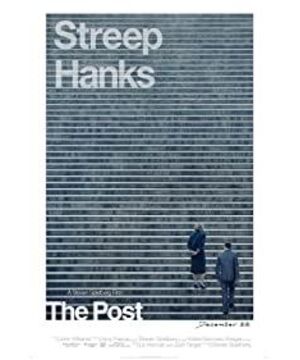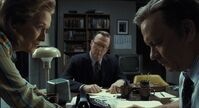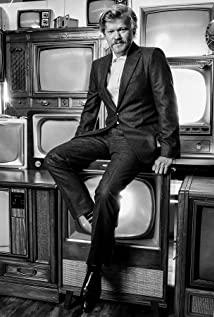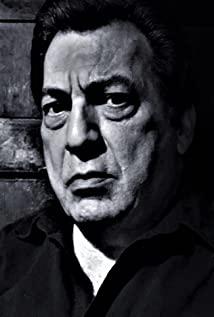The Washington Post revolves around the line that Kay Graham took over after the death of her husband and wanted to develop it into a newspaper of national influence. From the beginning of the film, we have a strong sense of her struggle to mediate between her all-male colleagues, investors and the board. The leak of confidential Pentagon documents is a historical opportunity and a challenge to her. At the climax of the film, Kaili, played by Meryl Streep, defies all arguments and says to a room of anxious men, "That's it, okay, now I'm going to bed." The theater at that moment was full of cheers and applause from the audience, but who knows if she has been sleepless all night in real life? As the wife of Ben Bradley, played by Tom Hanks, said in the film, the success or failure of this matter is much more at stake for Yu Kai. It's just that most people don't yet or don't want to realize this. Presumably, this lady also wanted her husband to stop and say to himself, who was silently making sandwiches for his colleagues when he was working hard for his personal and national future, that he had worked hard.
The significance of the film for press freedom and gender equality is self-evident, but what moved me even more was the in-depth presentation of the details of newspaper production in the traditional printing era. The most impressive scene is the editor played by Bob Odenkirk quietly writing at his desk, terrified and ignorant of himself and the future of the newspaper. At this moment, with Kai's order, the printing started. Without lines, the trembling building soberly told him that history was being changed. In addition, every character in the film, no matter how small, has its own shining moment, and a few words but outline a full and convincing character, such as in the Supreme Court, the woman who was late but secretly cheered Kay staff. In the end, Kai looked at her eyes, a little worried, but with contemplation and determination, who gave hope and courage to whom?
Talking about two episodes, the Post became famous after this incident, and then moved to a more stylish office building. In the early days of production, Spielberg always felt that the atmosphere of the environment and the tone of the story were not right, so he was told that the Post was still operating in the old office building at the time of this incident. Then, through the clues in the old photos, the existing set in the film was restored. The second episode was after the screening. In fact, it was the first time that Meryl Streep and Tom Hanks watched the entire film with our audience after filming. When asked about how the two handled their roles, according to Some interviews and biographies, Hanks said, should be Ben's love for Kay, who he believes is Ben's love for Kay. Meryl paused and said, in fact, she thinks it is more about respect. The relationship between the two of them is not based on any other relationship. How to get along with men and women in the workplace is a moment. Very important topic, especially when the woman is the boss.
When I mentioned these two points, I hope that the domestic production of historical topic films can put more effort into the initial research and investigation stage, and I also want to encourage actors, production teams, and audiences to express their different artistic understandings and thinking. When I was watching the movie, I had a feeling of excitement that I could burst into tears at any moment. Press freedom, women's workplace and family status, these topics are no strangers to Chinese audiences. American audiences may think of Trump and Russia, Harvey Weinstein and sexual harassment, but what we think of may be the red-headed document requesting to stop reporting on the Ctrip parent-child garden incident, or a professor threatening women on social networks. suitable for scientific research. America needs the satire and reflection on political and gender realities that films like The Washington Post bring, but in a sense, we may need it even more. History repeats itself, but only the truth is not absent.
View more about The Post reviews











